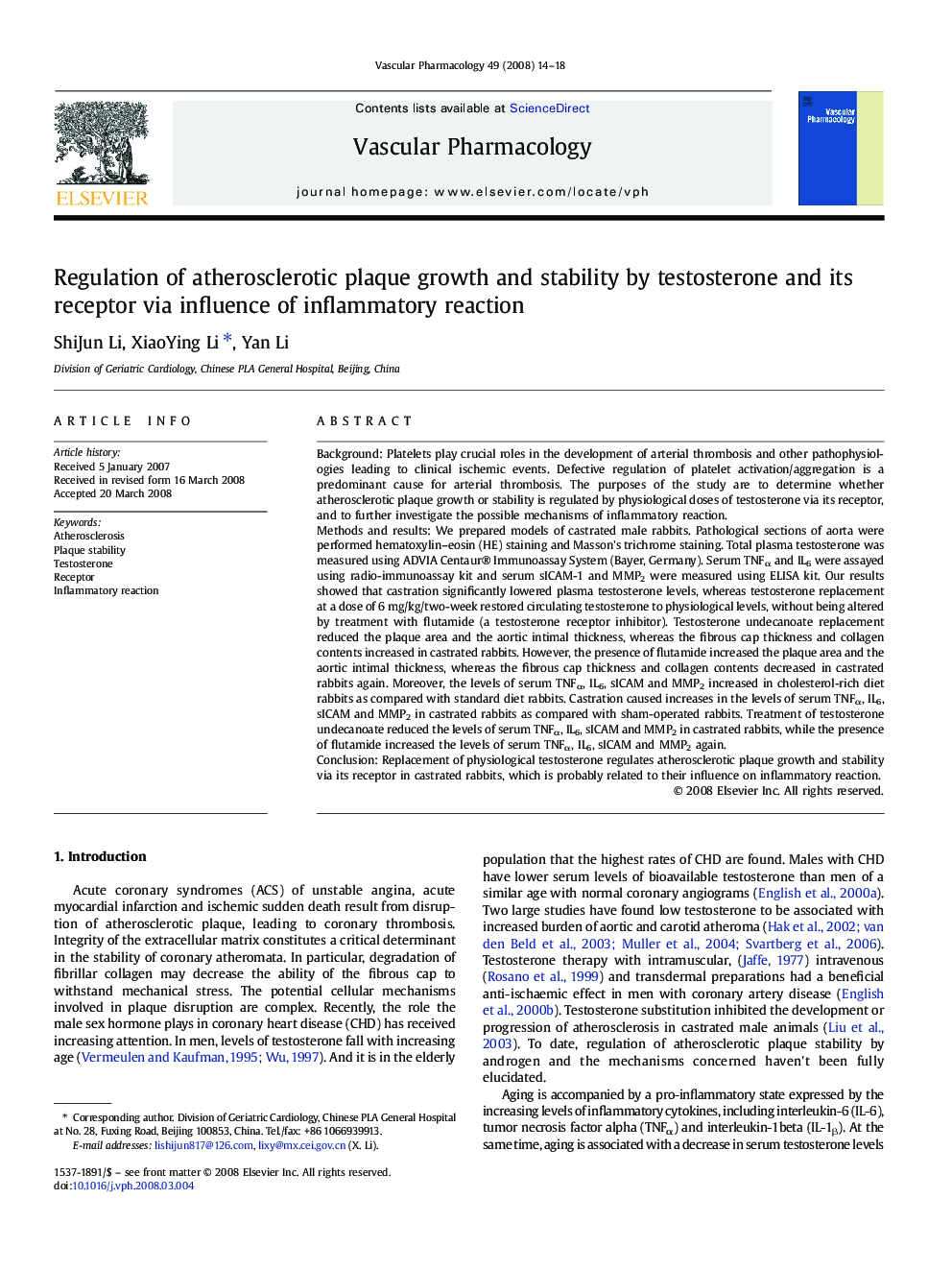| Article ID | Journal | Published Year | Pages | File Type |
|---|---|---|---|---|
| 2574655 | Vascular Pharmacology | 2008 | 5 Pages |
BackgroundPlatelets play crucial roles in the development of arterial thrombosis and other pathophysiologies leading to clinical ischemic events. Defective regulation of platelet activation/aggregation is a predominant cause for arterial thrombosis. The purposes of the study are to determine whether atherosclerotic plaque growth or stability is regulated by physiological doses of testosterone via its receptor, and to further investigate the possible mechanisms of inflammatory reaction.Methods and resultsWe prepared models of castrated male rabbits. Pathological sections of aorta were performed hematoxylin–eosin (HE) staining and Masson's trichrome staining. Total plasma testosterone was measured using ADVIA Centaur® Immunoassay System (Bayer, Germany). Serum TNFα and IL6 were assayed using radio-immunoassay kit and serum sICAM-1 and MMP2 were measured using ELISA kit. Our results showed that castration significantly lowered plasma testosterone levels, whereas testosterone replacement at a dose of 6 mg/kg/two-week restored circulating testosterone to physiological levels, without being altered by treatment with flutamide (a testosterone receptor inhibitor). Testosterone undecanoate replacement reduced the plaque area and the aortic intimal thickness, whereas the fibrous cap thickness and collagen contents increased in castrated rabbits. However, the presence of flutamide increased the plaque area and the aortic intimal thickness, whereas the fibrous cap thickness and collagen contents decreased in castrated rabbits again. Moreover, the levels of serum TNFα, IL6, sICAM and MMP2 increased in cholesterol-rich diet rabbits as compared with standard diet rabbits. Castration caused increases in the levels of serum TNFα, IL6, sICAM and MMP2 in castrated rabbits as compared with sham-operated rabbits. Treatment of testosterone undecanoate reduced the levels of serum TNFα, IL6, sICAM and MMP2 in castrated rabbits, while the presence of flutamide increased the levels of serum TNFα, IL6, sICAM and MMP2 again.ConclusionReplacement of physiological testosterone regulates atherosclerotic plaque growth and stability via its receptor in castrated rabbits, which is probably related to their influence on inflammatory reaction.
